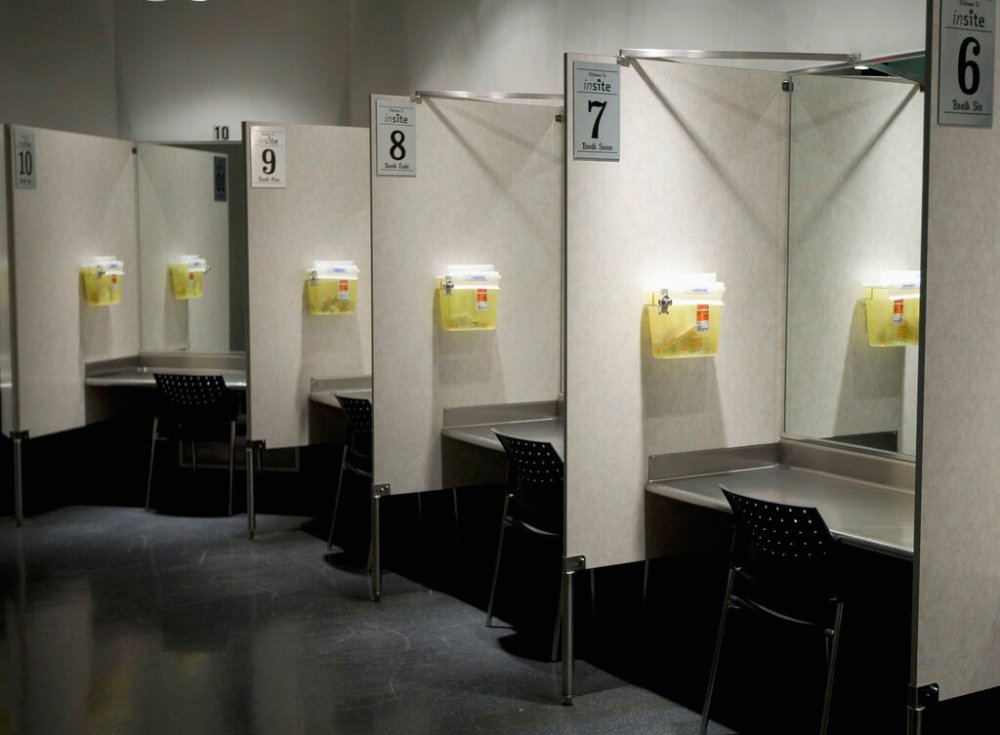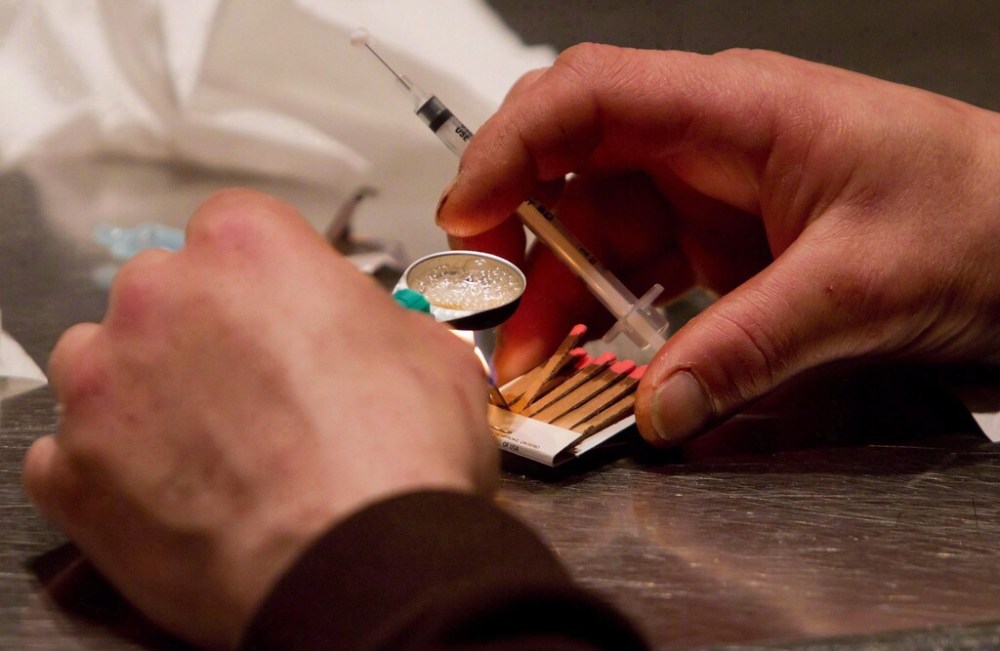Pallister in minority on safe consumption site issue
Read this article for free:
or
Already have an account? Log in here »
To continue reading, please subscribe:
Monthly Digital Subscription
$0 for the first 4 weeks*
- Enjoy unlimited reading on winnipegfreepress.com
- Read the E-Edition, our digital replica newspaper
- Access News Break, our award-winning app
- Play interactive puzzles
*No charge for 4 weeks then price increases to the regular rate of $19.00 plus GST every four weeks. Offer available to new and qualified returning subscribers only. Cancel any time.
Monthly Digital Subscription
$4.75/week*
- Enjoy unlimited reading on winnipegfreepress.com
- Read the E-Edition, our digital replica newspaper
- Access News Break, our award-winning app
- Play interactive puzzles
*Billed as $19 plus GST every four weeks. Cancel any time.
To continue reading, please subscribe:
Add Free Press access to your Brandon Sun subscription for only an additional
$1 for the first 4 weeks*
*Your next subscription payment will increase by $1.00 and you will be charged $16.99 plus GST for four weeks. After four weeks, your payment will increase to $23.99 plus GST every four weeks.
Read unlimited articles for free today:
or
Already have an account? Log in here »
Hey there, time traveller!
This article was published 24/02/2021 (1753 days ago), so information in it may no longer be current.
Premier Brian Pallister leads a government constantly surveying the public for input on its decisions — but not all of its decisions.
While Pallister has sought real-time feedback from Manitobans on issues such as pandemic restrictions and cannabis legalization, he has not opened up the government web portal to capture their thoughts on more controversial and pressing issues, such as supervised injection sites for people with drug addictions.
In a string of polls going back nearly three years, about two-thirds of Manitobans support the opening of such facilities. Those sentiments were reinforced, yet again, in an Angus Reid Institute poll released Wednesday, which showed 65 per cent of Canadians, and 63 per cent of Manitobans, favour the sites as a life-saving measure.
In the past, the premier has claimed repeatedly, on this issue, he will not govern by public opinion survey. Pallister has also claimed his opposition to so-called safe consumption sites is based more on research than public sentiment.

No one is quite sure what research he’s referring to, as the seminal scientific studies on the impact of safe consumption sites, in Canada and around the world, shows they lead to significant reductions in overdose deaths, infectious disease transmission, ambulance calls, and ER admissions.
However, even if Pallister wasn’t willing to be swayed by public opinion, he should be aware by rejecting both research and the polls, he is pandering to a very slim minority.
The Angus Reid Institute pointed out in its detailed survey tables there is there is a direct relationship between partisan affiliation and opinion on supervised injection sites in particular, and government policies on drug use in general.
In general, the Angus Reid poll says people who supported the Conservative Party federally, and the Progressive Conservatives in Manitoba, had high levels of support for harsher penalties and compulsory treatment for drug users, and lower support for decriminalizing illegal drugs and supervised injection sites.
No governing party can completely ignore the sentiments of its core supporters. However, when the issue is a matter of public health — when lives are at stake — one would hope even the most hyper-partisan of governing parties would consider the opinions of the gross majority of citizens.
Manitoba’s Tory premier is not willing to do that, despite the fact in the age of low voter turnout, he didn’t really need much support to win government.

In the 2019 election, the Progressive Conservatives won 47 per cent of votes cast, and were rewarded with 63 per cent of all seats in the Manitoba legislature. In the current electoral system, that legitimately qualifies as a strong majority mandate.
However, given 2019 voter turnout was a paltry 55 per cent, Pallister’s party only got the support of 25 per cent of all those eligible to vote.
In making this observation, it’s important to note this is not a criticism of the Pallister government. This is a mathematical weakness that undermines the mandates won by all Canadian governments under its first-past-the-post electoral system.
While the numbers do not delegitimize Pallister’s claim to a “majority,” they do require the premier to take the necessary steps to show he can govern for all citizens, not just those who voted for him.
In this particular incidence, it’s impossible to get away from the fact Pallister is more concerned about the core of his support, and his own philosophical leanings, and less concerned about broader public opinion or the science on supervised injection sites.
Or, quite frankly, in the fate of addicts.
The Pallister government has been unable to shake its deeply held philosophical belief that people suffering from mental health and addictions are generally unsympathetic. The premier will trumpet the millions of dollars his government has spent on improving services but, in doing so, will ignore gaping holes in the safety net for mental health and addictions.
It should be noted there have been positive accomplishments by the Tory government on this file. In particular, the creation of rapid access to addictions medicine clinics, which allow people with substance abuse problems to receive specialized treatment and counselling options on a walk-in basis.
As positive as the RAAM sites may be, they do not replace the need for safe consumption facilities.
The former is about helping people on the longer road to recovery; the latter is about helping addicts stay alive so, one day, they can walk through the doors of a RAAM clinic.
Pallister loves to tell people he is a premier for all Manitobans.
But by ignoring the clear will of the gross majority on this issue, without providing any evidence to back up his position, Pallister is demonstrating he only cares about the health and welfare of one in four Manitobans.
dan.lett@freepress.mb.ca

Born and raised in and around Toronto, Dan Lett came to Winnipeg in 1986, less than a year out of journalism school with a lifelong dream to be a newspaper reporter.
Our newsroom depends on a growing audience of readers to power our journalism. If you are not a paid reader, please consider becoming a subscriber.
Our newsroom depends on its audience of readers to power our journalism. Thank you for your support.












